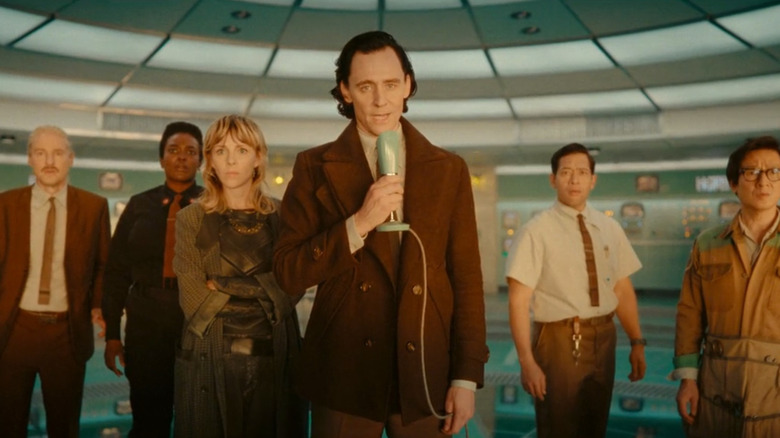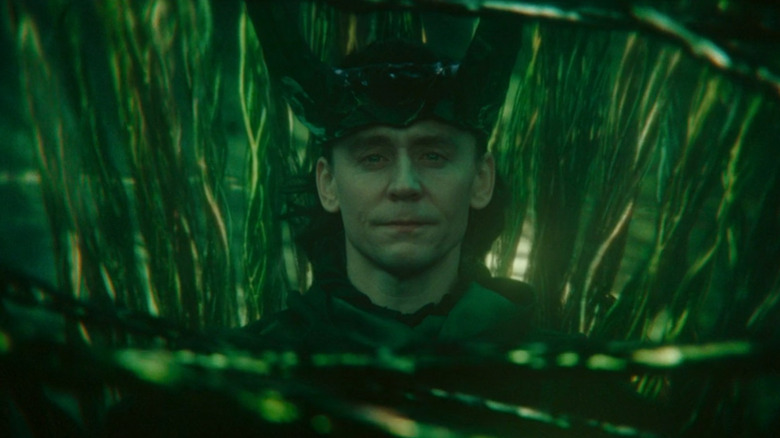The Loki Season 2 Finale Quoted Two Poems - But What Do They Mean?
Contains spoilers for "Loki" Season 2, Episode 6 — "Glorious Purpose"
Loki (Tom Hiddleston) has always had a penchant for verbosity. As such, it may not be surprising that for the Season 2 finale of "Loki," there are two references to famous literature sprinkled throughout the time-bending plot. Both quotes are integral to understanding Loki's journey to becoming a god of time who holds the very fabric of the multiverse together, because that was always meant to be his one true glorious purpose.
The first quote to examine should be familiar to anyone whose high school English curriculum covered William Shakespeare — so, really, most of us. During the episode, Loki talks about wasting time and how time is now wasting him. This is markedly similar to a quote from "Richard II," "I wasted time, and now doth time waste me." The meaning of this quote is fairly straightforward; it's about a man who frittered away life, and now, with less life in front of him, time is taking its toll.
Any quote mentioning time will be appropriate for "Loki," but the "Richard II" line is of particular importance. Loki is one of the longest-running characters in the Marvel Cinematic Universe, going back to 2011's "Thor." He wanted to rule, and believed it was his true purpose. As the Season 2 finale of "Loki" shows, he was indeed destined for greatness, just not how he imagined. He came to appreciate his new friends and was willing to isolate himself as a god of time to protect them, even if it came with his own misery. He wasted so much time pursuing something that could never happen, and now, time is all he has left.
The other literary reference from Loki hails from T.S. Eliot
The other poetic moment from "Loki" Season 2, Episode 6, comes when the titular god speaks with He Who Remains (Jonathan Majors). In a rather confounding moment for He Who Remains, Loki says, "We die with the dying. We're born with the dead." Those words come from a T.S. Eliot poem titled, "Four Quartets 4: Little Gidding." Overall, it's a melancholic poem ultimately about unifying the past, present, and future in order to find salvation. Once again, time comes into play, which is very much relevant throughout "Loki." And the poem foreshadows Loki's fate.
"Little Gidding" plays off paradoxes, about how one can't exist in and out of time, which is explained through the use of symbols with double meanings, such as fire being both a destructive and purifying force. With that in mind, the paradoxes result in an alternate path where one can escape the horrors of reality. This is the path Loki takes to save his friends and the TVA. He literally exists in and out of time as a new god, holding the multiverse together. One could say the poem's meaning helps Loki find a solution. He breaks free of He Who Remains' equation to pursue a new path — one he couldn't have foreseen.
Interestingly, the show's composer, Natalie Holt, spoke with Collider about how Tom Hiddleston gave her a special gift: "It's a T.S. Eliot book, the 'Four Quartets.' It's about time. Tom's a very thoughtful actor and thoughtful man, and I think he put so much into the character. He's a producer on the show, so just a big hand in how the show is, is due to Tom, I think." Much like time itself, it's all connected.

